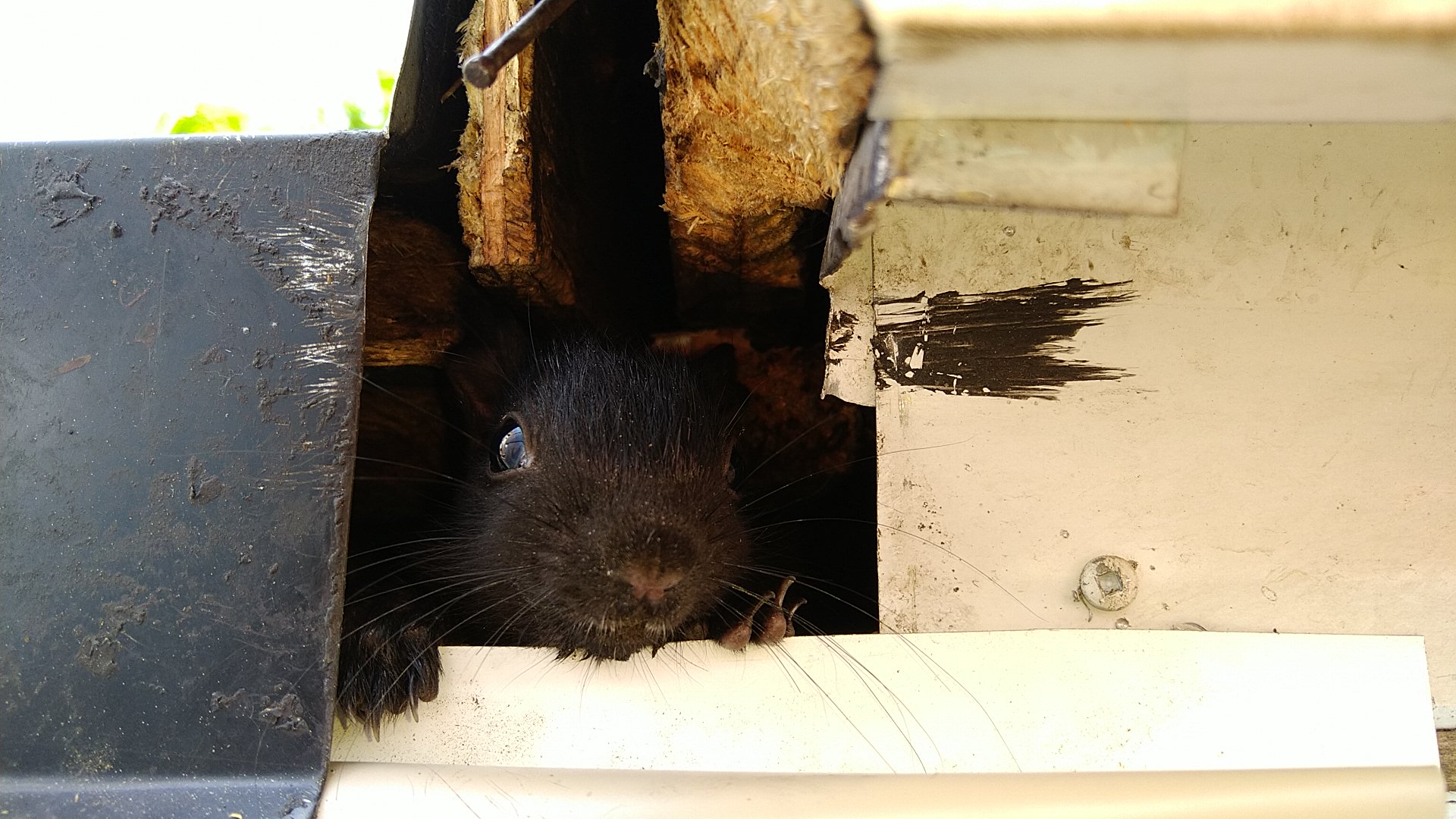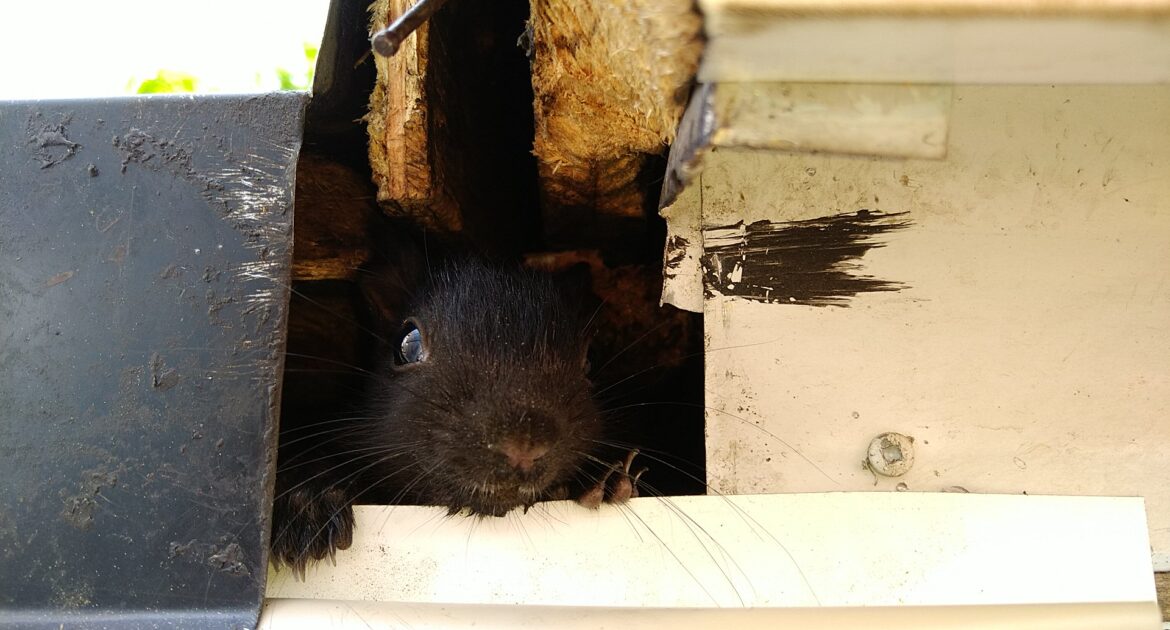A squirrel’s teeth are its bread and butter. Without those sharp teeth, a squirrel can’t shell nuts, disassemble seed pods, or shred through branches and stumps to create soft bedding. Just like a mouse, a squirrel’s teeth never stop growing, for its entire life. This means squirrels have to constantly chew in order to file their teeth down. If they mind their own business, squirrels don’t cause much of a problem. But if they are chewing through your beams or wires, you may need to call a company like ours that offers wildlife control in Newmarket.
What Kind of Teeth Do They Have?
Squirrel teeth are essentially made of three layers: enamel, cementum, and dentin. Enamel is the outermost layer, very similar to most mammals’ tooth exteriors. The secondary cementum layer is calcified and covers the root of the tooth. The innermost layer is the dentin, which is soft pulp. This is true of all teeth in the squirrel’s mouth, whether incisors, premolars (cheek teeth), or molars.
How Many Teeth Do They Have? What About Baby Squirrels?
Adult squirrels have 20 teeth: four incisors, four premolars, and twelve molars. The only exception to this is the Eastern gray squirrel which boasts 22 teeth. Squirrels do not have canine teeth. Baby squirrels are born with no teeth and consume only their mother’s milk for the first two weeks of their life until their teeth start to grow in. Baby squirrels have an interesting challenge in that their heads are often oversized until their bodies catch up. This means they are prone to falling and may break their new teeth. If a squirrel has fewer than 20 teeth, this may be the reason why.
What Do They Use Their Teeth For?
Squirrels are uniquely evolved to split nut pods and crack seeds open with their strong teeth. They also need to be able to gnaw on all species of wood, in order to create soft bedding of shavings for their babies to sleep on. While the fact their teeth never stop growing is a benefit and means they never have to worry about losing teeth, it does mean that they have to chew constantly. If they don’t, their teeth will become too long, their jaws will go off-kilter and they will be in pain (not to mention lose the ability to eat efficiently). A final use of their sharp teeth is for self-defence. Their arms are short, and not especially suited for fighting or grasping (in contrast with raccoons), but they are perfectly capable of biting a predator or human if they feel threatened.
What Kind of Damage Can Squirrels Do to Your Home With Their Teeth?
If the squirrel takes up residence in your home through loss of habitat or in response to a source of food or warmth, they can chew weakness into wood beams that may destabilize the structural integrity of your home. They can also chew through wires which causes electrical shorts and fires. If they damage exterior soffits or flashing, this can let water seep behind your walls. Finally, when they leave their droppings in your crawlspace or attics, these can harbour diseases that can then be transferred to humans.
Humane Wildlife Control in Newmarket
Although it may be frustrating to have squirrels in your home, it is never a good idea to touch or handle a squirrel by yourself. Remember, they can attack you with those teeth! Better to schedule an appointment with a professional squirrel removal service. We know how to keep your home safe from future invasion.




